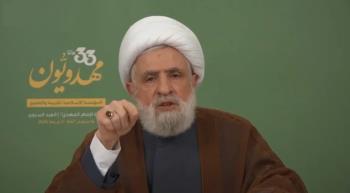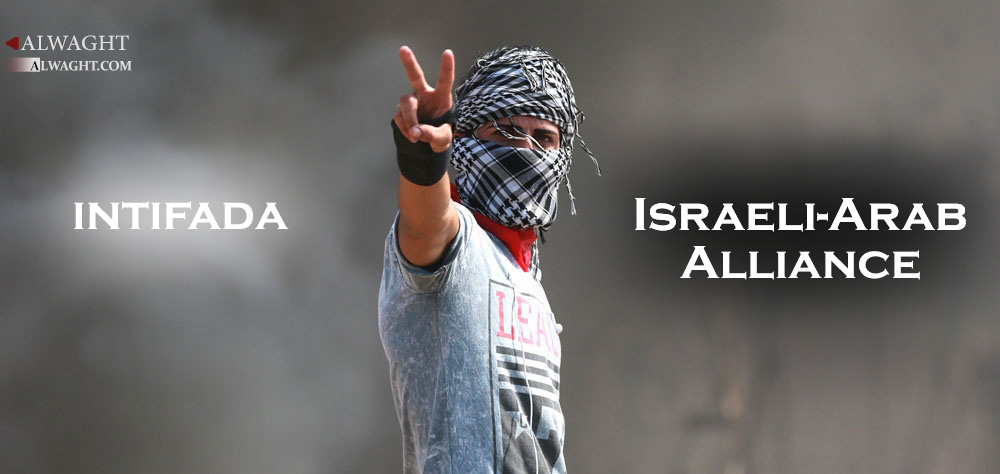Alwaght- The security and political conditions the West Asia region is grappling with are still affecting, either directly or indirectly, the Palestinian cause’s developments.
On the one hand, the Palestinians press ahead with their Al-Quds and West Bank intifada against the Israeli regime, and at the same time enhance their military strength to defend Gaza Strip against any upcoming Israeli aggression and also to thwart Tel Aviv’s expansionist policies.
On the other hand, the Israeli regime tried to pave the way for normalization of diplomatic relations with some of the Arab countries in a bid to address the possible war with Lebanon’s Hezbollah or Hamas movement in Gaza.
This article brings in spotlight the latest developments and their impacts on the Palestinian cause specifically and the region generally.
Al-Quds intifada
The anti-Israeli uprising sparked over six months ago in early October 2015 in the West Bank and the eastern Al-Quds. So far, over 200 Palestinians have been killed during the clashes and 16,000 others were injured.
The intifada has managed to challenge the security strength of the Israeli regime and intimidate the Israeli military and political leaders thanks to the suicide operations carried out by the young Palestinians who panicked the Israeli settlers as well as the Israeli security forces, and confused Tel Aviv’s security and military calculations.
According to figures published by the Israeli polling center, now 77 percent of the Israeli settlers are worried about the Palestinians’ surprise operations, while about 52 percent others of the settlers assert they are not feeling safe due to the Palestinian attacks.
The Israeli leaders have claimed that the Palestinian intifada winded down as the anti-Israeli settlers and forces operations conducted by the Palestinians saw a decline in West Bank and Al-Quds during the past few weeks. However, the attack on a bus carrying Israelis in Al-Quds on April 18, 2016 killed 21 of them and caused many analysts to review their idea and think that the intifada has moved into a new phase and it would inflict even bigger damages on the Israeli regime.
Possible new Israeli aggression against Gaza
Tel Aviv is facing a growing day by day Palestinian resistance. Earlier this year, the Israeli military officials cautioned against increasing power of the Palestinian factions in Gaza, including Hamas movement. The strength is mostly built by missiles on the one hand and digging tunnels from Gaza to the border lines held by the Israeli regime. The tunnels have worried the Israeli settlers residing in north and east of Gaza as they would possibly be used by the Palestinian groups to face any upcoming Israeli assault as the observers argue that Tel Aviv is counting the days to launch an offensive against the besieged Gaza.
The Israeli regime has warned that there could be clashes with both Hezbollah in the southern front and Hamas in northern occupied Palestine front, but it said that the war could not happen in the near future as Hezbollah is busy with the Syrian fronts. This, at the same time, could add to possibility of Tel Aviv’s seizing the opportunity to attack Gaza in near future. Many experts argue that the Israeli assault on Gaza could take place this year.
There are other evidences indicating that the aggression on Gaza could happen soon, including evacuation of the settlements close to Gaza to avoid being targeted by the Palestinian factions which have warned Tel Aviv of a tough response in case of any assault on Gaza.
Due to negligence of the Palestinian cause by a majority of the Arab and Islamic countries, and their grappling with crises at home or with foreign aggression as the case is with Syria, Iraq and Yemen, it appears that Israeli attack of Gaza in the near future in not unlikely.
The Arab-Israeli alliance
After the Palestinian cause was driven off the priorities of many of Islamic and Arab states, the Israeli regime has managed to bolster its cooperation and coordination with a number of the regional countries like Saudi Arabia, the UAE, Egypt and Turkey. The coordination majorly aims at confronting the Axis of Resistance including Iran and Hezbollah. The outcome of the Israeli-Arab cooperation is the diversion of attention from the threats that Tel Aviv could pose to the Arab world and the region as a whole to Iran and Hezbollah. The way is also paved for the Israeli regime to be recognized officially as a state by its regional co-conspirators.
The common hostility to Syria has boosted the coordination and brought it to serve the Israeli regime which abused the chaotic circumstances to launch airstrikes on Syria and to assassinate some of the Resistance commanders like Hezbollah’s Mustafa Badreddine and Samir Kuntar.
Egypt also backed the Israeli side through tightening the siege of Gaza to choke off Hamas. At the same time, Jordan and some other regional states turned into military bases to implement Washington’s strategy for what they call the Greater Middle East Project, which intends to split into smaller pieces the region in order to loot its resources and take over its fate as a service for Tel Aviv and its Western supporters, on top of them Washington.



























